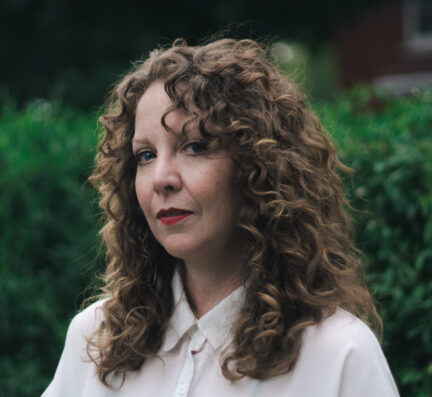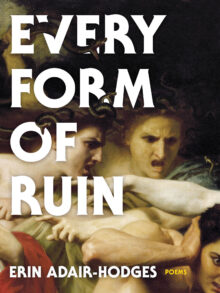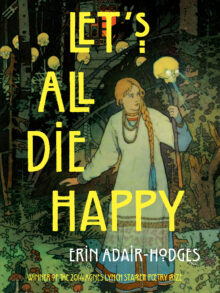
Erin Adair-Hodges
Erin Adair-Hodges is the author of Let’s All Die Happy, winner of the Agnes Lynch Starrett Poetry Prize. Recipient of the Allen Tate Prize and the Loraine Williams Poetry Prize, her work has been featured in American Poetry Review, Gulf Coast, Kenyon Review, PBS NewsHour, Ploughshares, Sewanee Review, and more. Born and raised in New Mexico, she now lives with her family in Kansas City, Missouri, and works as a fiction acquisitions editor.
Every Form of Ruin
Poems
A rebuttal to Aeschylus’s Oresteia, Every Form of Ruin posits the Erinyes’ fury as righteous, understanding Clytemnestra’s rageful response to loss, and refusing Iphigenia’s relegation to a footnoted sacrifice. A fierce and darkly funny examination of anger, these lyrical poems push back against silencing by playing witness to a world where the experiences of women, nonbinary, and femme-identifying people are too often ignored, their responses dismissed as hysterical. These poems are also investigations into the loneliness of midlife; the search for one’s own self when that self has given its life to service. Every Form of Ruin counters our culture’s erasure of women and resists the categorizations of maiden, mother, crone by blurring those distinctions through the creation of voices that are moved by rage and resistance.
BLACK THUMB
The dogwood was threatening
to swallow the back garden’s light,
so I borrowed a chainsaw and gas.
Its last berries a memory of red, the fruit
bitter, tiny angry mangos in the mouth
of its killer. Nights my son chooses his father
to read him into silence, I practice not loving
anything. Less like learning than remembering.
As a child, I studied how to be a child.
I was given a doll to care for
but could never remember its name.
I left her face down everywhere.
Let’s All Die Happy
The poems in Let’s All Die Happy explore apostasy, concerned with what happens after the beliefs and institutions which promised fulfillment leave us empty instead. Through a darkly humorous lens, it also examines a patriarchal culture in which women are defined through their relationship to others and how this inheritance weighs heavily not only on the lives we lead but shapes what life it is possible to even imagine having. Ultimately, the poems push against these containers, burning through the stages of a woman’s life until there’s nothing left but to invent what’s next, finding both loneliness and liberation in this reclamation.


